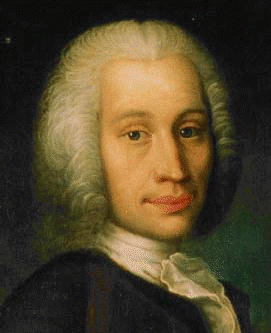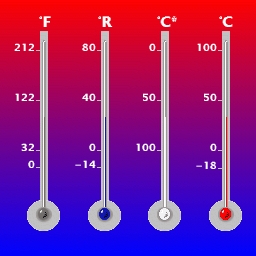
 |
Anders Celsius was born at the 27th of January 1701 in Uppsala. After his education time in this town north of Stockholm he became professor for astronomy already in 1730. At this time there was no larger observatory anywhere in Sweden. Therefor Celsius began a round trip to some of the famous European astronomy sites in 1732. He came from Nuremberg and Rome to Paris in 1734.
Director of the observatory there, founded in 1672, was Jaques Cassini (1677-1756) son of Jean-Dominique Cassini (1625-1712). At this time a disput between English and French astronomer about the shape of the Earth was actual. To find the true answer to this question expeditions had to be sent to the "ends" of the world to measure exactly the local positions. The expedition to the north was commissioned to Pierre Louis de Maupertuis (1696-1759), which Celsius joined as an assistant. The journey to Lapland, the very northern part of Sweden lasted from 1736 to 1737 and with the other measurements it confirmed the theory of Newton about the flattening of the Earth poles.
 |
Celsius was an active supporter for the introduction of the Gregorian calendar reform in Sweden. This was already tried in 1700, but it was planned to introduce the modifications of the date stepwise by dropping the leap days from 1700 to 1740. When 1704 and 1708 were declared as leap years by error, in 1712 Sweden returned to the Julian calendar. The engagement of Celsius was only fruitful after his death. Celsius died early in 1744 in his hometown. The Gregorian calender was introduced in Sweden in 1753, doing it by dropping the supernumerary 11 days at once. (Source: calendar.faq)